Reckless Late Night Bar Bill Fails Again
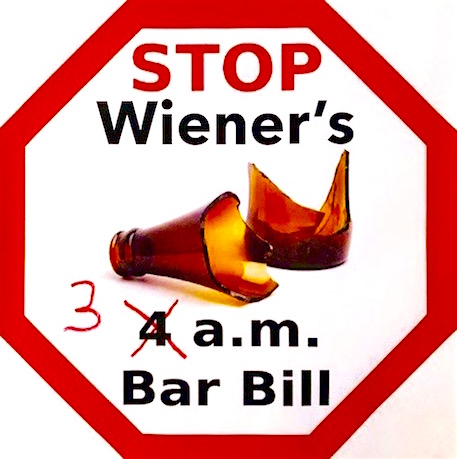 In a resounding victory for prevention, SB 58, the 3 a.m. (nee 4 a.m.) bar bill was decisively voted down by the California State Assembly. The vote puts punctuation on a tumultuous fight by local health and safety advocates against a powerful state coalition of big nightlife concerns, centered around State Senator Scott Wiener. SB 58 marked the third time one of Sen. Wiener's bills extending last call failed. In 2017, the bill was turned into a study on the feasibility of extended bar hours, then pulled by its author. In 2018, a modified version of the bill was vetoed by then Governor Jerry Brown. This year, the bill was rejected on the Assembly floor. It remains to be seen if Sen. Wiener will bring it back in 2020.
In a resounding victory for prevention, SB 58, the 3 a.m. (nee 4 a.m.) bar bill was decisively voted down by the California State Assembly. The vote puts punctuation on a tumultuous fight by local health and safety advocates against a powerful state coalition of big nightlife concerns, centered around State Senator Scott Wiener. SB 58 marked the third time one of Sen. Wiener's bills extending last call failed. In 2017, the bill was turned into a study on the feasibility of extended bar hours, then pulled by its author. In 2018, a modified version of the bill was vetoed by then Governor Jerry Brown. This year, the bill was rejected on the Assembly floor. It remains to be seen if Sen. Wiener will bring it back in 2020."It was a powerful sign that this bill failed a simple Assembly vote," said Michael Scippa, Public Affairs Director of Alcohol Justice. "This wasn't just the action of one powerful politician. It was legislators speaking up for their constituents en masse."
The failure for SB 58 was helped along by a resolution from the Los Angeles City Council rejecting late last call times. This extraordinary gesture occurred flew in the face of the text of the bill, which specifically targeted Los Angeles for extended hours, and Mayor Eric Garcetti, who supported the bill. Shortly after the resolution passed, the bill was modified to shorten the extended hours from 4 a.m. to 3 a.m. But in light of the local opposition, even that proved insufficient to save the bill.
Concerns around extended last call times included greater risks of DUI, violence, crime, and injury. In July, the Berkeley-based Alcohol Research Group released a study examining the real costs of late-night alcohol service in Los Angeles. Its most conservative estimate showed over $50 million in annual costs from additional service. Over 5 years, the estimated net costs ranged from $266 million to over $1 billion.
Sen. Wiener has not yet expressed an intention to bring the bill back yet again in the coming legislative year. Despite the irregularities around reintroducing failed bills, he has brought his bar bill back on back-to-back-to-back years. If it comes to a fourth fight, however, the research, advocacy, and prevention community has no intention of going home early.
WATCH the video of the decisive vote--did your representative stand against alcohol harm?
READ MORE about the harms that come with extended bar hours.
READ MORE about the costs to Los Angeles from late last calls.
READ MORE about the ongoing fight for late night.
4 A.M. Bar Bill Keeps Moving Forward As New Report Finds Up to $1 Billion In Costs from Late Last Calls
 Despite passionate opposition and alarming new research, SB 58 (aka the 4 A.M. Bar Bill) continues to make its way through the California legislature, passing the California State Assembly Committee on Governmental Operations (GO) by a narrow vote. The bill seeks to set up an ersatz “pilot program” that would allow 10 cities across California to establish 4 a.m. last call times for bars and nightclubs. Two previous versions of SB 58 stalled out in previous years. Hopes that this year’s Assembly GO would follow their lead have so far proven fruitless.
Despite passionate opposition and alarming new research, SB 58 (aka the 4 A.M. Bar Bill) continues to make its way through the California legislature, passing the California State Assembly Committee on Governmental Operations (GO) by a narrow vote. The bill seeks to set up an ersatz “pilot program” that would allow 10 cities across California to establish 4 a.m. last call times for bars and nightclubs. Two previous versions of SB 58 stalled out in previous years. Hopes that this year’s Assembly GO would follow their lead have so far proven fruitless.
Assembly GO Committee member Tom Lackey, a former California Highway Patrol Officer, spoke passionately about the concerns law enforcement has with extending last calls. “I have direct knowledge of the tragedy that’s associated when alcohol-impaired driving is coupled with the extreme fatigue that we also see in drivers between 2 and 4 a.m,” Assemblymember Lackey said. “Through this legislation we will extend the hours of most danger and that is terrible, reprehensible, abhorrent, scary, and should be denounced.”
Assemblymember Lackey’s fears were reinforced by a new analysis conducted by the Oakland-based Alcohol Research Group (ARG), and released the day before the vote. The report looked at the potential impact on Los Angeles from extended last call times and found staggering costs associated with the bill. Assuming only 5% of the eligible establishments in Los Angeles opt to stay open to 4 a.m., the projected costs from the additional alcohol sales top $266 million over 5 years. If 20% of the eligible bars opt in, the costs go over $1 billion.
Those are only the estimated costs per drink. The actual harms—what Governor Jerry Brown termed the “mischief and mayhem” when he vetoed a nearly identical bill last year—skyrocket as well. The ARG team found that a 4 a.m. last call, if universally adopted in the city, would result in 18,934 more violent crimes, 2,741 alcohol-related arrests, 3,237 DUIs, 809 motor vehicle crashes, and an astonishing 94,147 ambulance calls.
These figures, staggering as they are, were not enough to sway the committee, which passed the bill by one vote. “SB 58 is nothing more than another greedy grab for more profits by promoting binge drinking in the wee hours of the morning,” said Bruce Lee Livingston, Executive Director/CEO of Alcohol Justice. “Alcohol Justice applauds those committee members who voted ‘no,’ and those who stayed off the bill. We urge the rest of the Assembly to do what the GO committee failed at and stop this dangerous experiment.”
The bill moves to the Assembly Appropriations Committee next. Alcohol Justice urges all concerned allies to take action at the link below and tell Appropriations to stop this reckless bill before the harm is on our doorstep.
TAKE ACTION to tell your legislators to stop this bill.
READ MORE about the expected costs of the 4 A.M. Bar Bill.
READ MORE about how the Assembly GO Committee let down California.
4 A.M. Last Call Research Update: "Splash Effect" Means One City's Party Is Another City's Pain
Six cities' plans to paint the town red will splash blood across the whole California map.
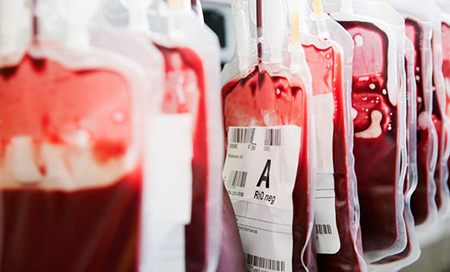 Despite outright rejection in last year's legislative cycle, the deep pockets of big nightclub promotion companies have persuaded the California legislature to revisit 4 a.m. last calls. The current version of the bill, still written by Scott Wiener but now labeled SB 905, only permits six cities to extend bar service hours. Those cities are San Francisco, Oakland, Sacramento, West Hollywood, Long Beach, and the City of Los Angeles.
Despite outright rejection in last year's legislative cycle, the deep pockets of big nightclub promotion companies have persuaded the California legislature to revisit 4 a.m. last calls. The current version of the bill, still written by Scott Wiener but now labeled SB 905, only permits six cities to extend bar service hours. Those cities are San Francisco, Oakland, Sacramento, West Hollywood, Long Beach, and the City of Los Angeles.
Despite the tweaks to this bill, the problems plaguing it remain obvious. Sensible last call policies are valuable policies that reduce harm without criminalizing drinking. A study on Norway during a period of patchwork last call hours shows that extending them increased assaults by 17% per additional hour. In Sydney, Australia, efforts to deal with runaway chaos from overconsumption inspired a 2-hour reduction in bar hours that reduced violence by 22% to 45%, depending on the area. Other studies on drunk driving shows that 51% more drivers got in alcohol related crashes when leaving bars with extended last calls.
More simply, keeping a bar open later means the people there will have drunk more. Far from being under debate, more drinking underlies the ostensible economic benefits accruing the handful of massive nightclubs that are sponsoring this bill. What these operators, and their reckless proxy, Sen. Wiener, are trying to hide is how easily they will avoid any of the consequences. Instead, these consequences will be borne by the tens of millions of Californians outside these newfound "party zones," as drunk drivers pour out of the city center and into quiet outlying communities. The results will be disruptive and expensive at best, lethal at worst.
In California, fatal alcohol-related crashes an ongoing crisis. According to the California Office of Traffic Safety, fully 20% more people died in alcohol-related crashes in 2016 than 2014. At the rate fatal crashes are increasing, the death toll will double between 2016 and 2024. This spike persists despite efforts to promote designated drivers, despite the claims of ride-sharing services… and despite the vacant platitudes of SB 905 supporters who want to profit and while hoping someone else deals with the aftermath.
By definition, DUIs do not occur at the place where the driver got drunk. Ventura County alone out of all California counties tracks the behaviors of drunk drivers going through its DUI diversion programs. They found that drivers had traveled an average of 7 miles before getting arrested, with a maximum of 150 miles. Around 15% of young adults were arrested returning from either Hollywood or Santa Barbara-both at least 30 miles from the Ventura County border.
With that in mind, Alcohol Justice assembled the Splash Maps for SB 905. These maps show 7-mile and 40-mile "splash zones" where the drunk driving damage will occur. In addition, we compiled lists of cities within the splash zones. (If you feel your community was not included in the list and should be, please let us know.)
LONG BEACH 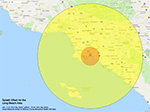
splash zone MAP
splash zone city LIST
LOS ANGELES & WEST HOLLYWOOD 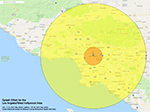
splash zone MAP
splash zone city LIST
SACRAMENTO 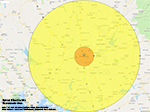
splash zone MAP
splash zone city LIST
SAN FRANCISCO & OAKLAND 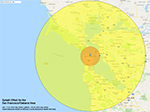
splash zone MAP
splash zone city LIST
READ MORE about how Sen. Wiener exploits the deaths young Californians to pass a bill endangering many more.
READ MORE about how late last calls will hurt California.
TAKE ACTION to stop SB 905 and choose California lives over nightlife lobbies.
New 4 A.M. Bar Bill Puts Lipstick on a Pig
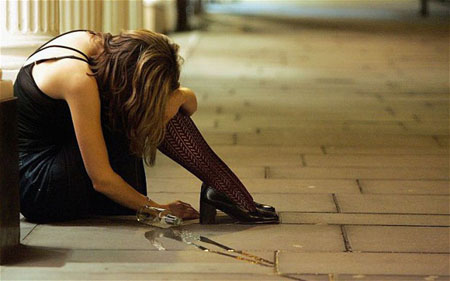 Shortly after the defeat of SB 386, Scott Wiener’s bill to roll back last call times, Sen Wiener declared he would reintroduce nearly the same bill in 2018. While he claims the new version would limit late last calls to “only” six cities in California, those six cities fall in the metropolitan core for over 30 million residents—over 75% of the population of the state.
Shortly after the defeat of SB 386, Scott Wiener’s bill to roll back last call times, Sen Wiener declared he would reintroduce nearly the same bill in 2018. While he claims the new version would limit late last calls to “only” six cities in California, those six cities fall in the metropolitan core for over 30 million residents—over 75% of the population of the state.
Research, as well as common sense, shows this bill will cost money and lives. This was evident when the previous version of the bill was introduced last year. However, by reintroducing a failed bill immediately after the earlier version was rejected, Sen. Wiener spits in the face of established State Senate norms. The current version claims to be a "new" bill by virtue of limiting late last calls to six cities in the Bay Area, Sacramento, and Los Angeles, but the effect is the same: greater alcohol consumption, more dangerous driving, more late-night violence and property damage. Moreover, the effected areas are in the centers of the most populous parts of the state. Over 75% of the state is within driving distance of late-night areas.
Once again, CAPA and Alcohol Justice call upon the California legislature to do the right thing and kill this bill. It would uphold the standards of the State Senate, and protect the lives of tens of millions of Californians.
READ MORE about Sen. Wiener's cynical and dangerous bill.
WATCH the video about SB 905.
TAKE ACTION to stop SB 905, the revived 4 A.M. Bar Bill.
More Articles ...
Help us hold Big Alcohol accountable for the harm its products cause.
| GET ACTION ALERTS AND eNEWS |
STAY CONNECTED    |
CONTACT US 24 Belvedere St. San Rafael, CA 94901 415-456-5692 |
SUPPORT US Terms of Service & Privacy Policy |


